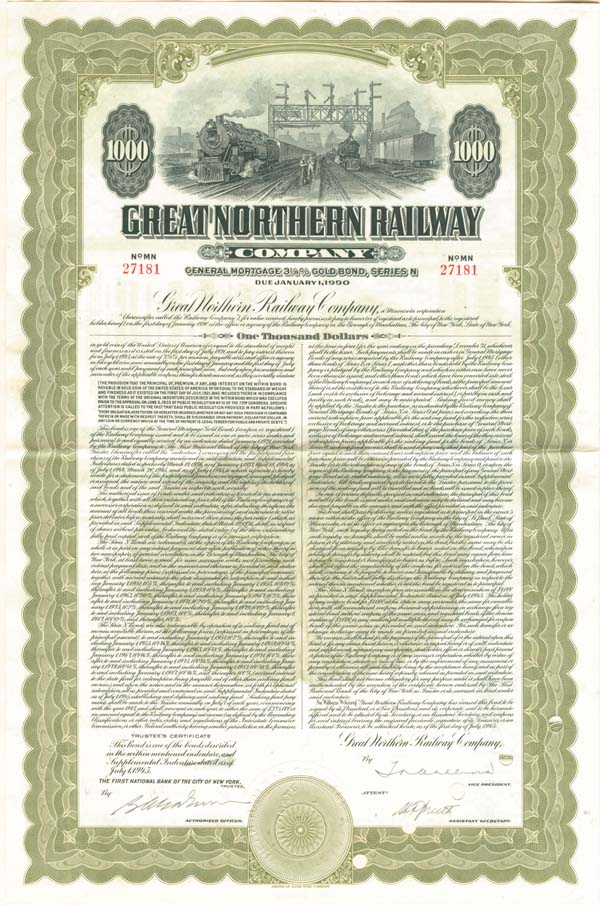Great Northern Railway Co. - 1945 dated Railroad Bond
Inv# RB5502 Bond
$1,000 Bond,Train vignette engraved by American Bank Note Co. Attractive! Scarce! Available in Olive, Green or Brown. Please specify color.
The Great Northern Railway (reporting mark GN) was an American Class I railroad. Running from Saint Paul, Minnesota, to Seattle, Washington, it was the creation of 19th-century railroad entrepreneur James J. Hill and was developed from the Saint Paul & Pacific Railroad. The Great Northern's route was the northernmost transcontinental railroad route in the U.S. In 1970, the Great Northern Railway merged with three other railroads to form the Burlington Northern Railroad, which merged in 1996 with the Atchison, Topeka and Santa Fe Railway to form the Burlington Northern and Santa Fe Railway.
The Great Northern was the only successfully built privately funded transcontinental railroad in U.S. history. No federal subsidies were used during its construction, unlike all other transcontinental railroads. The Great Northern was slowly built in stages, slowly creating profitable lines, before extending the road further into the undeveloped Western territories. In a series of the earliest public relations campaigns, contests were held to promote interest in the railroad and the ranchlands along its route. Fred J. Adams used promotional incentives such as feed and seed donations to farmers getting started along the line. Contests were all-inclusive, from largest farm animals to largest freight carload capacity and were promoted heavily to immigrants and newcomers from the East. Read more at https://en.wikipedia.org/wiki/Great_Northern_Railway_(U.S.)
A bond is a document of title for a loan. Bonds are issued, not only by businesses, but also by national, state or city governments, or other public bodies, or sometimes by individuals. Bonds are a loan to the company or other body. They are normally repayable within a stated period of time. Bonds earn interest at a fixed rate, which must usually be paid by the undertaking regardless of its financial results. A bondholder is a creditor of the undertaking.











Ebay ID: labarre_galleries